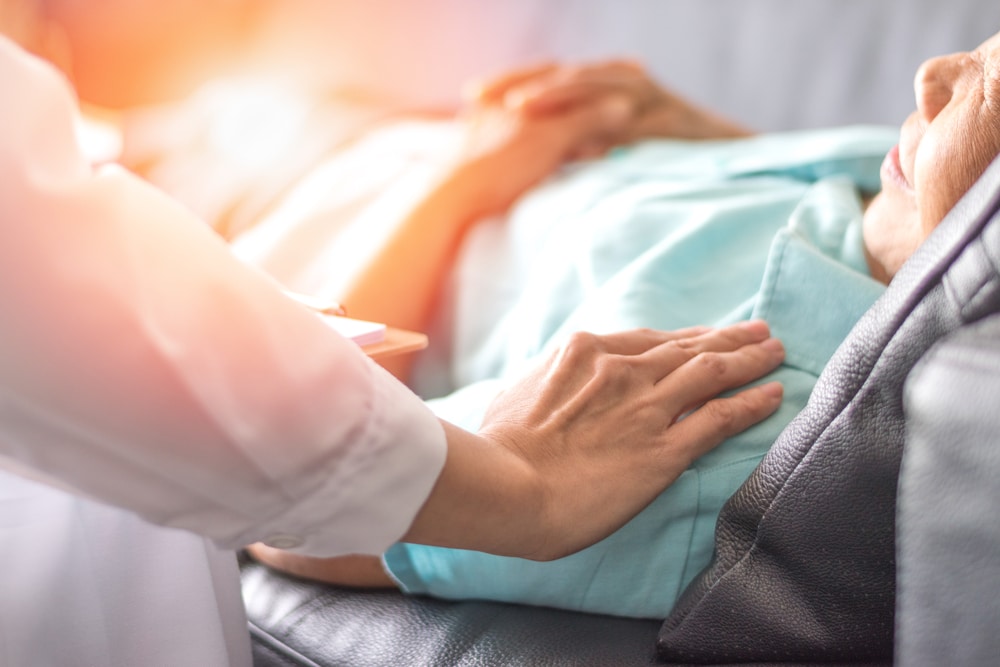Hospice care takes the efforts of a multidisciplinary team, and for many patients in Cleveland, a chaplain is a key member of the care team.
So, what do hospice chaplains do?
Coping with a terminal condition and a limited life expectancy can be emotionally difficult for anyone. While nurses, physicians, therapists and other trained professionals tend to a hospice patient’s medical, social and psychological needs, chaplains work to nurture the spirit, providing support and emotional guidance.
 What is a Hospice Chaplain?
What is a Hospice Chaplain?
First of all, while many people in Cleveland believe that chaplains are associated with a particular church or religious belief system, this isn’t the case.
Hospice chaplains are licensed professionals who are uniquely trained to work with patients and families of all faith backgrounds – and with people who don’t identify with any religion. As part of their professional development, chaplains gain the ability to relate to anyone, regardless of their spiritual beliefs.
Emotional comfort and a shoulder to lean on is what hospice chaplains provide, and there’s no preaching or judgment involved. Their work is focused on helping each individual find their own personal peace and meaning in the end-of-life journey.
How Hospice Chaplains Help Patients
The role of a hospice chaplain isn’t to offer answers about life and death – it’s to listen, make connections and be there to ensure that no one feels alone.
As for how a hospice chaplain address the spiritual needs of Cleveland patients, their work may involve any or all of the following:
- Regularly visiting, talking about any topic that comes up or serving as a listening ear for spiritual struggles and concerns
- Making sure that the patient has friends, family members and hospice team members ready to keep them company
- Helping the patient come to terms with their terminal condition and the complex emotions that arise with mortality and loss
- Having meaningful conversations about life, death and spirituality, while encouraging the patient to embrace their own beliefs
- Joining the patient in meditation, mindfulness exercises, prayer or another type of requested ritual or spiritual practice
Hospice chaplains don’t follow a particular agenda when working with Cleveland patients. Instead, they listen, observe and learn about the individual and what they find important. Everyone approaches the end of life differently, and after making a connection, a chaplain can recommend coping methods and strategies that may bring additional comfort. As trained professionals, any spiritual guidance they offer is in line with the patient’s beliefs.
How Hospice Chaplains Help Families
A terminal condition brings the need for spiritual support and emotional guidance – and not just for the individual who has been diagnosed.
Having a loved one enter hospice care can cause feelings of fear, frustration, anxiety and anger. The situation is undeniably distressing, and even someone who is deeply religious may face struggles with their spirituality when someone they hold dear is about to pass away.
Hospice chaplains help Cleveland families work through the pain and grief that comes with a loved one’s death. They do this by listening and by having meaningful conversations about the family’s spiritual coping practices. Chaplains encourage everyone to maintain their own beliefs and rituals, and for those in need, suggest alternative outlets – such as journaling or meditating – that may provide mental comfort.
In addition, hospice chaplains offer guidance during the bereavement process. When a patient passes away, the family can turn to a chaplain for:
- Grief counseling and emotional support
- Assistance in planning a memorial service
- Information regarding local support groups
Chaplains serve as a valuable resource for families, and spiritual care is covered under the Medicare Hospice Benefit for up to 13 months after a patient’s death. The same is usually true for hospice coverage through Medicaid and private insurance. However, services are optional, and anyone can refuse a chaplain visit for any reason.
Supporting the Hospice Care Team
Hospice patients who receive spiritual care frequently feel less physical pain and less distress from other symptoms. Making peace and finding meaning in the end-of-life journey are only partially responsible – the chaplain is an integral component.
During the course of their work with Cleveland patients, chaplains listen for important information that they can share with the rest of the hospice care team. Their observations offer a different perspective, and since the nature of their work isn’t focused on achieving specific objectives, chaplains are able to recognize when patients need additional support. Their insights help guide the plan of care, ensuring a greater level of comfort on a day-to-day basis. Because of this, agreeing to visits from a hospice chaplain is highly recommended, even for individuals who don’t believe they need spiritual support.
At Suncrest, we believe in doing whatever we can to bring comfort to those facing end-of-life issues. If a loved one has a terminal condition, your family can count on us to meet their physical, psychological, emotional and spiritual care needs. For more information on our hospice chaplains and the other members of our professional team, or to arrange for a consultation to discuss hospice care services for a family member in Cleveland, Ohio, contact us today.


